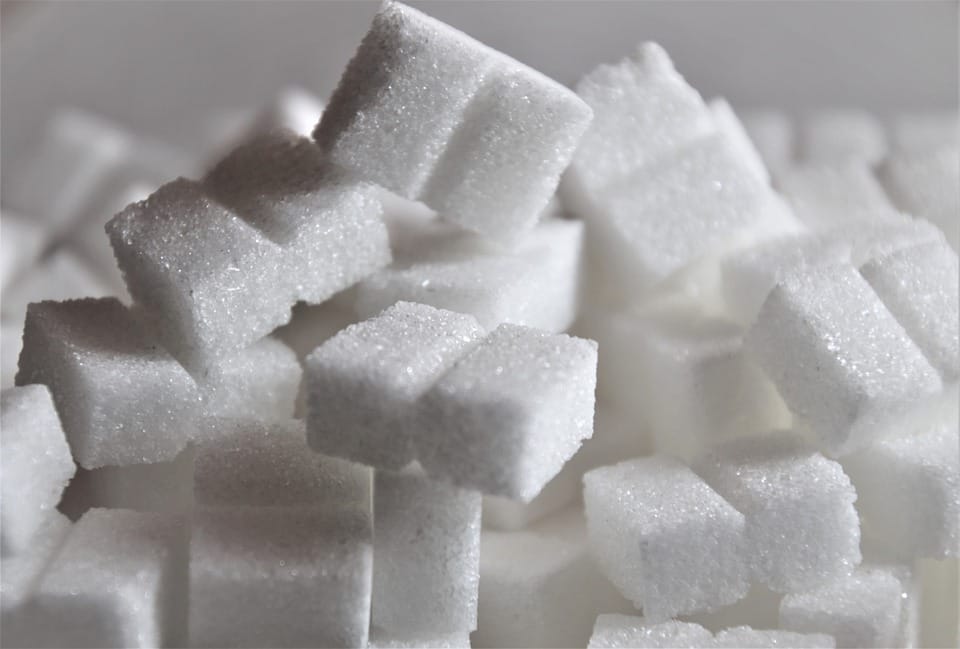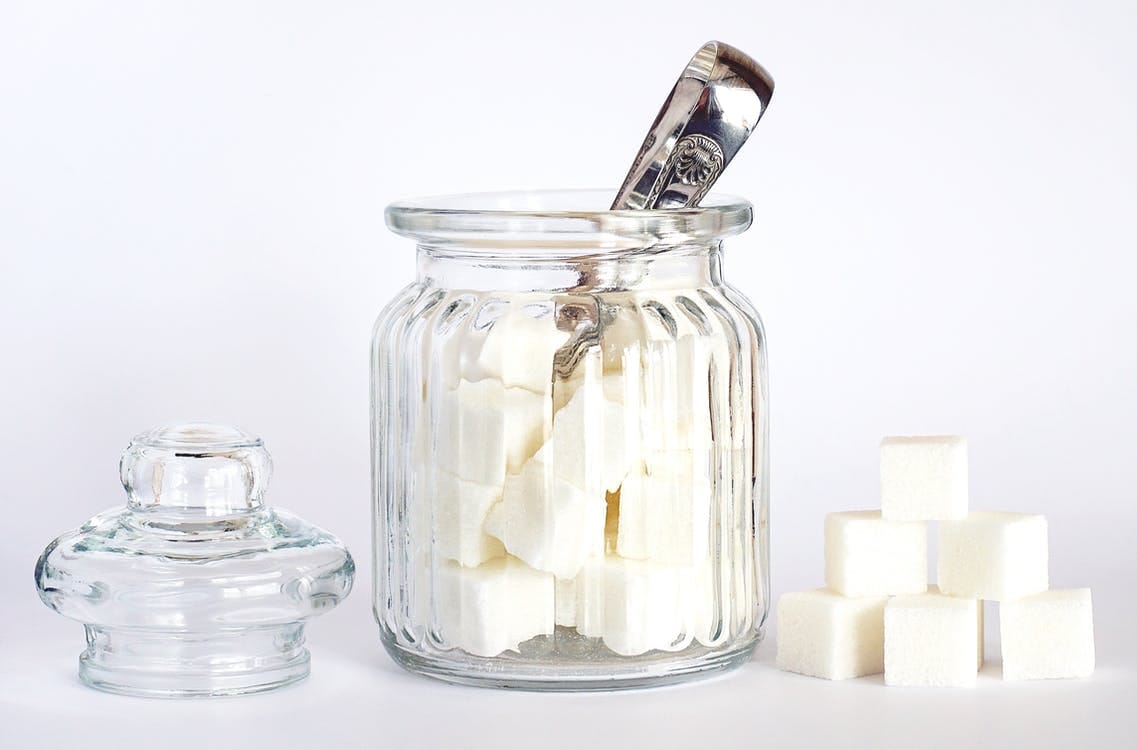There is a popular belief that sugar is highly addictive, akin to a drug. We decided to check how true this statement is.
Culinary experts write about sugar addiction on their resources. bloggers, nutritionists and just supporters healthy lifestyle. This is a very popular topic in glossy publications: they wrote about it in Psychologies, Elle, Harper's Bazaar And Wonderzine. IN Marie Claire a whole series articles from advicehow to overcome sugar addiction. Men's magazine Men's Health invited its readers to find out if they were addicted to sugar. Reputable federal media also raised this topic, for example TASS, "News", "Moskovsky Komsomolets" etc.
Love for sugar got it to us from distant ancestors who received carbohydrates and vitamins mainly from plant foods, including fruits and berries. Sweetness was a sign that the fruit was ripe and ready to eat. Sugar gave our distant ancestors energy, just as it gives us now. But sugar in its pure form does not exist in nature, so they consumed it along with fiber, vitamins, minerals and other beneficial nutrients. Accordingly, they physically could not eat as much sugar as we began to eat, having learned to separate it from other elements.
What we now call sugar is a substance sucrose, which consists of glucose and fructose. It does not contain any vitamins and minerals, which means it does not bring any benefit to the body, unlike the sugars that our ancestors consumed along with fruits and berries.
WHO recommends An adult should consume no more than 50 g of sugar per day - this is 10% of the recommended daily intake of 2000 kcal. At the same time, experts note that it would be better for health to reduce consumption by half more - to 25 g (that's about six teaspoons). And we are talking not only about pure sugar, which we add, for example, to coffee, and about sweets like cakes and sweets. Sugar is found in many products in our diet: fruits, sauces, juices and especially in sweet soda (up to 40 g in one can!), and all this should also be included in that same 10%.

Most people do not follow these recommendations. According to statistics, average American consumes about 17 teaspoons of sugar per day, and Russian, according to the Ministry of Agriculture in 2017, about 25. This exceeds WHO recommendations several times!
Why do we eat so many sweets? This connected with the fact that sugar causes the production of dopamine and serotonin - happiness hormones. This is why a person who is excited, upset or scared craves something sweet - to eat away the stress. Sugar can really quickly improve your mood (though only for a short time) - in this way its effect is similar to the effect of alcohol and drugs. Were research, during which subjects underwent functional magnetic resonance imaging (fMRI), which showed that sugar activates the same areas of the brain as drugs. Moreover, in addition to stimulating the production of dopamine and serotonin, sugar also suppresses release of cortisol, which is called the stress hormone.
So, sugar is an ideal remedy for fighting a bad mood? Everything would be fine, but, firstly, excessive sugar consumption can cause many health problems, for example cardiovascular diseases, obesity, deterioration memory, depression and even cancer. And secondly, over time, the brain stops producing the necessary hormones on its own, and a person has to replenish them with another dose of sweets, and more than the previous ones. This is how it is formed addiction.
The first about addiction to sugar and the harm from it spoke British nutritionist John Yudkin, who wrote the book Pure, White, Deadly in 1972. He claimedthat it is not fats that lead to obesity and other problems, as previously thought, but sugar, which is also addictive. However, no one listened to him then - the food industry lobby was too strong, which had just switched to producing low-fat products, improving its taste with sweeteners. Yudkin was declared almost crazy, the reaction to his book was so negative that for a long time it discouraged many from publishing any critical research on sugar.

But in 2009, University of California endocrinologist Robert Lustig gave an hour-and-a-half lecture about the dangers of sugar, where he called John Yudkin a visionary who was the first to try to open the eyes of the public. Lustig called for treating sugar as an addictive toxin on par with alcohol and tobacco. The lecture received almost 19 million views on YouTube, and Yudkin’s book went from dusty waste paper to becoming a bibliographic rarity. With Lustig agree and Lewis Cantlie, a cell biologist at Harvard. He claims that sugar addiction is worse than cocaine, nicotine or any other drug in existence. Cantlie himself has not eaten sugar since the 70s.
In 2002, biologists conducted experiment on rats: animals were not fed for 12 hours, and then had access to food and sweetened water for 12 hours. After a month of such a diet, the rats showed all the signs of drug addiction: uncontrollable cravings for sugar, withdrawal symptoms similar to opioids, overeating, etc. In 2007, another group of scientists conducted a similar study. study, where rats were given a choice of water sweetened with saccharin or cocaine. Eight times a day, the animals could choose between two levers; the effect of pressing each was given to them to try twice before the experiment began. One lever led to an intravenous injection of cocaine, and the other gave access to sweet water for 20 seconds. 94% of rats preferred saccharin, and increasing the dose of cocaine did not change the result. Scientists have concluded that sugar leads to a much stronger addiction than cocaine.
Moreover, some biologists thinkSince sugar addiction can develop into alcohol or drug addiction, it increases the likelihood that a person will become addicted to other stimulants.

However, not all researchers agree that sugar addiction, comparable to drug addiction, can actually develop in humans. Scientists from a number of European universities, united in a project called NeuroFast, have been studying the connection between food, addiction and stress for several years. IN result they found no evidence that any food, dietary supplement or ingredient, with the exception of any alcohol and coffee, is addictive.
In 2016, a group of scientists systematized everything that was known at that time about the effect of sugar on living organisms, and concluded, that despite the results of experiments with rats, there is no evidence that they are also true for people. One of their main arguments was that addiction and withdrawal syndrome are caused not by sugar itself, but by the frequency of its entry into the body, that is, the alternation of uncontrolled consumption with complete abandonment of it, which does not happen in ordinary life.
However, in 2019, California doctors conducted study, during which overweight teenagers were asked to completely give up sugary soda for a while. During this period, the subjects complained of headaches, decreased motivation, a general deterioration in well-being, and a strong craving for that same sugar-containing soda. These are standard withdrawal symptoms.
Thus, despite decades of research, scientists have not been able to come to a clear conclusion whether sugar causes addiction, similar to drugs, or not. Although more and more experiments have supported this theory in recent years, most of them are carried out on animals, which does not allow us to definitively say that these results are also true for humans.
Most likely true
Read on the topic:
- Sugar intake recommendations for adults and children (WHO)
- The Guardian: The Sugar Conspiracy
- Nicole Avina. How sugar affects the brain
- Is it true that different areas of the tongue are responsible for the perception of different tastes?
If you find a spelling or grammatical error, please let us know by highlighting the error text and clicking Ctrl+Enter.






